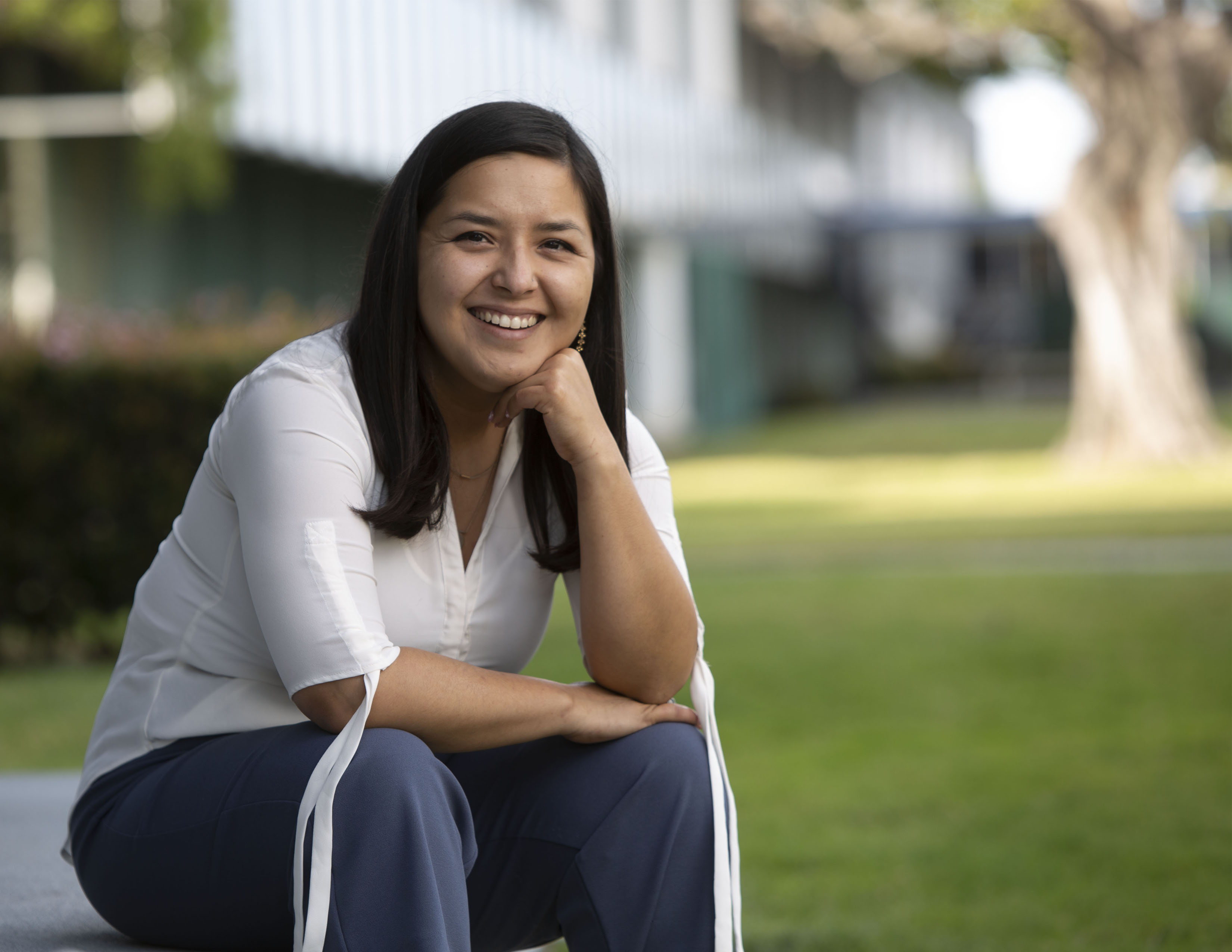Melding Traditional Manufacturing Techniques with Technological Advances
-
-
Slice of MIT
Filed Under
Recommended

Madeline Salazar ’13 is helping aerospace and defense company Northrop Grumman transform its approach to manufacturing—an effort that, along with her work at other companies, recently earned her a spot on the Forbes “30 Under 30” list.
“When I accept it and I internalize it, I’m so proud to have had this opportunity,” says Salazar, who graduated from MIT with a degree in mechanical engineering. “My family would have never imagined having this as part of our experience.”
Salazar is a technology manager for additive and digital manufacturing. The role puts her at the forefront of melding traditional manufacturing techniques with technological advances that make processes more efficient and flexible—sometimes referred to as the Fourth Industrial Revolution. In the realm of additive manufacturing, she oversees a team developing 3D printing technologies for incorporation into the creation of flight parts. She also leads a team that is developing digital manufacturing capabilities for factories at Northrop. This team optimizes the massive streams of data flooding in from systems on the factory floor, and uses the information gleaned from those data to improve workflow or produce new parts. These two specialties work well together: For example, if the system alerts Salazar and her team that a piece of manufacturing equipment has failed or they realize that a specialized tool is required to complete a job, they can create exactly what is needed.
“We get this real-time view of how a machine is running in terms of uptime, or any alarms that are coming up,” she says.
Her role allows her to meld her love of all things manufacturing with the “anything is possible” mindset instilled in her at MIT.
“My happy place is balancing technology advancements with some business understanding,” she says. “Being at MIT, you see all these researchers reaching for these seemingly impossible things. And yet, they approach them as if they’re completely possible. So I try to implement that in my day-to-day.”
My happy place is balancing technology advancements with some business understanding. Being at MIT, you see all these researchers reaching for these seemingly impossible things. And yet, they approach them as if they’re completely possible. So I try to implement that in my day-to-day.
Since 2013, Salazar has worked at large companies and startups across the aerospace spectrum—from Boeing to NASA’s Jet Propulsion Lab to Radia Inc.—relying on skills she learned at MIT to garner business knowledge on the job. “Between the general ed courses, which included the sciences, and the English courses,” she says, “that balanced foundation is what made me a critical thinker.”
Respect for the power of education has been a long-running theme in Salazar’s life. Born to Mexican immigrants in California, she excelled at math and science in elementary school, and her teachers started encouraging her to think about a career in engineering.
“My parents were really supportive, especially my mom,” she says. “My mom really instilled in my sister and me the fact that education was going to be the way that you get out of poverty, the way that you set yourself up so that your kids do better than you.”
The value of that kind of support from her parents and teachers during grade school has not been lost on Salazar. Alongside her work as an engineer, she has made it a priority to act as a mentor to others, doing outreach both through MIT-alumnae-founded Latinas in STEM and on her own. She has made numerous classroom visits to talk to high school students about her path in engineering and led summer workshops on applications of science and tech that might not be covered in a high school classroom—such as how to wireframe an app or the chemistry behind creating perfume.
Now, with her increased managerial responsibilities at Northrop, her classroom visits have become less frequent (and since the start of the pandemic in March 2020, whenever she has been able to talk to students, it’s been through a video call). But that doesn’t mean she takes her responsibility as a mentor any less seriously.
“Being a woman in engineering can be difficult; being a woman in aerospace and defense has an added layer,” she says. “There’s so many times where I’m the only woman, or even added to that the only person of color, in a room. So when I meet women here at work—now as a manager, especially—I feel a responsibility to support them, as they need me.”
While the Forbes recognition was certainly an honor, Salazar also sees it as an urging to keep going.
“I want to do so much more in this world while I can,” Salazar says. The subtext of the award, as she sees it: “Okay, Madeline, good job so far. What else you got for us?”
Are you engaged in volunteer service activities like Madeline Salazar? Check out the MIT Alumni Better World Service Initiative to connect with MIT alums working to meet great societal challenges through their volunteer efforts.







